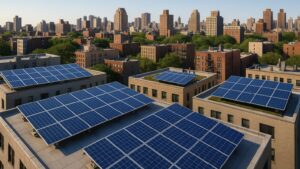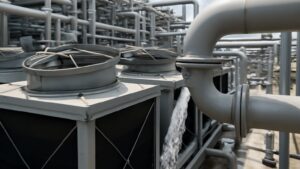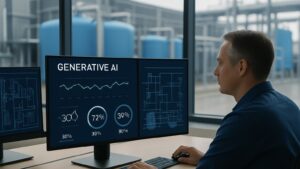The European markets are on a mission to conquer the ambitious decarbonization challenge outlined by the Paris Agreement. Businesses from various sectors operating in the region are being pushed to ramp up their efforts and reach the zero-emission target by 2050. The agriculture market is no exception, as the pollution from the sector is not to be underestimated. Agriculture is the most prominent industry in the world, while also being the leading source of pollution in many countries.
A recent report by The Guardian has revealed a shocking truth – in China, one of the world’s largest industrial powers, farms are causing more pollution than factories! Yes, you read that right. The impact of agriculture on the environment is a significant issue that requires innovative solutions. Nevertheless, sustainable or net zero agriculture practices can pose as valuable assets towards a future where food production is not only efficient but also eco-friendly. What is the state of progress in the net zero agricultural settings? Let’s examine some of the ways farming practices can make a big difference in the fight against climate change.
Change is on the Horizon
Implementing innovative new-horizon technological solutions in an agricultural sector has a significant potential to decrease carbon gas emissions, but at what cost? A variety of cutting-edge innovations, including vertical farming, cultured meat, 3-D printing, methanogenic inhibitors, smart packaging, and nano-drones, are not widespread and are too costly for an average farm. However, if these technologies are subsidized and further advanced, new-horizon innovations can revolutionize the sector while contributing to net zero goals.
Rethinking Meat Reduction in Agriculture
Many believe that reducing livestock consumption is the key to saving the planet, but recent research shows that simply replacing the source of protein may not be as effective as we once thought. Scientists predict that meat and milk production will considerably increase over the next 3 decades due to population growth, making it almost impossible to rely on drastically decreasing livestock emissions by 2050. While reducing meat consumption alone may not be enough to achieve net-zero emissions, it can still be a crucial part of a larger strategy. When combined with other net-zero practices, reducing the demand for livestock consumption can be an essential step toward creating a more sustainable food system.
What should companies be doing?
Most of the ideas here focus on farming, but it shows a general complacency in many industries. Leaders might think that if they aren’t among the top polluters worldwide, they can go about their business without a hitch. This often comes from an old-fashioned understanding of CO2 emissions and environmental effects in general. Agriculture and the food industry by extension is also a major emitter and should, as a result, rethink its priorities. Many of the ideas here are just a start, but leaders need to explore the technologies of the future. It’s vital to work out roadmaps and learn from one’s peers to avoid the many pitfalls along the way to net-zero.
The Global Summit on Scope 3 Emissions Reduction will bring together key industry experts to learn more about reporting strategies & carbon data management in a small-scale, industry-driven event, on 20-21st April 2023 in Amsterdam, the Netherlands. The two-day, hybrid event features in-depth case studies of supply chain transformation, carbon accounting, and networking breaks dedicated to exchanging insights and expertise on tackling Scope 3 emissions. Visit future-bridge.eu and netzero-events.com or follow us on our social media to track other energy use and decarbonization events.





